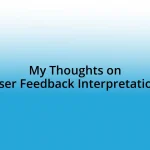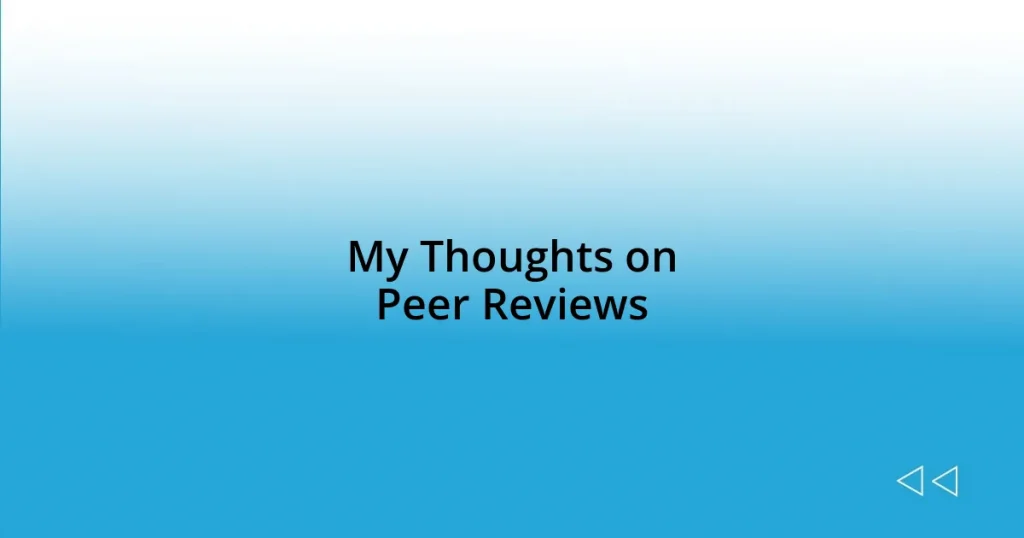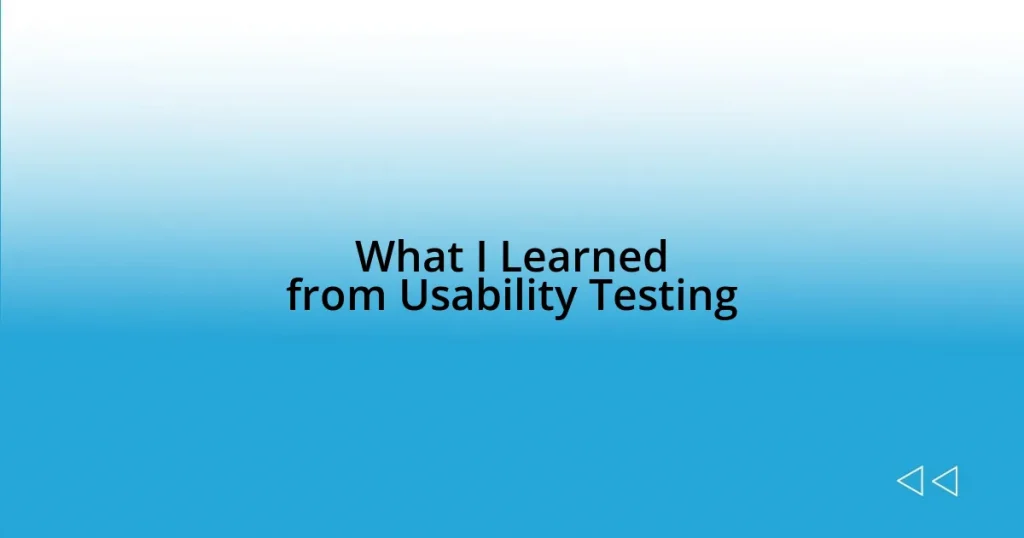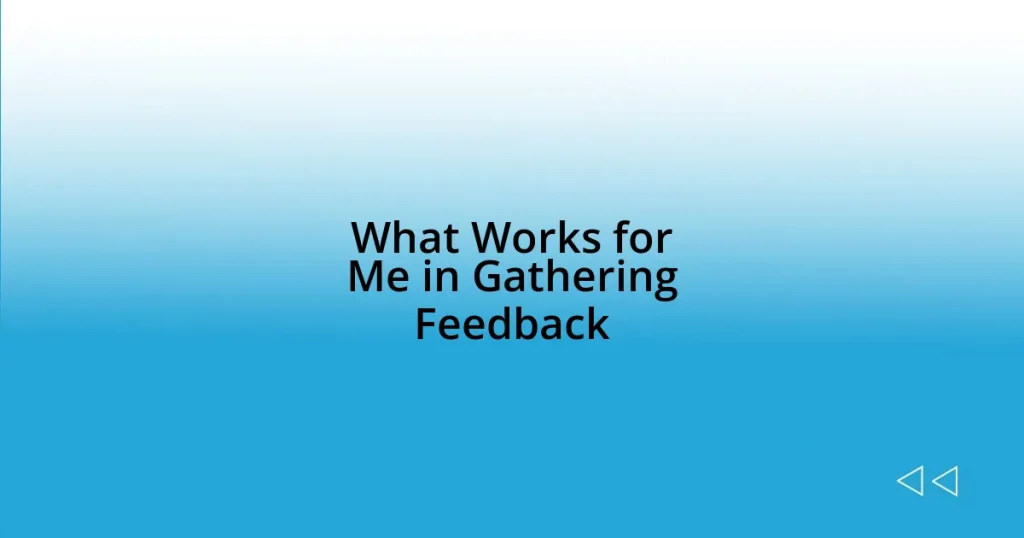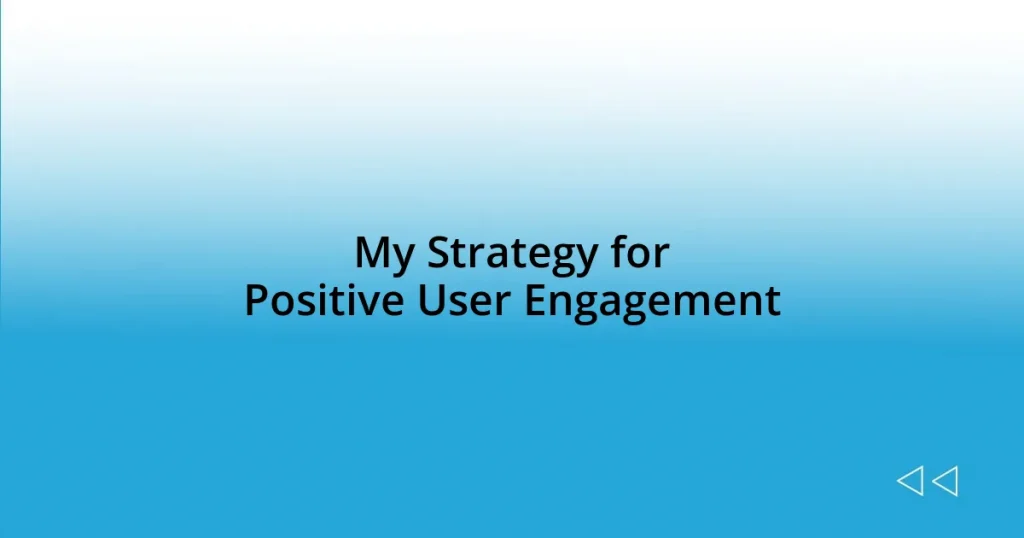Key takeaways:
- Peer reviews enhance research quality by providing fresh perspectives, identifying errors, and promoting scholarly growth.
- Common challenges include conflicting reviewer feedback, lengthy review processes, and reviewer bias that can undermine the fairness of evaluations.
- Constructive feedback should balance honesty and empathy, focus on specific suggestions, and end with positive encouragement to motivate authors.
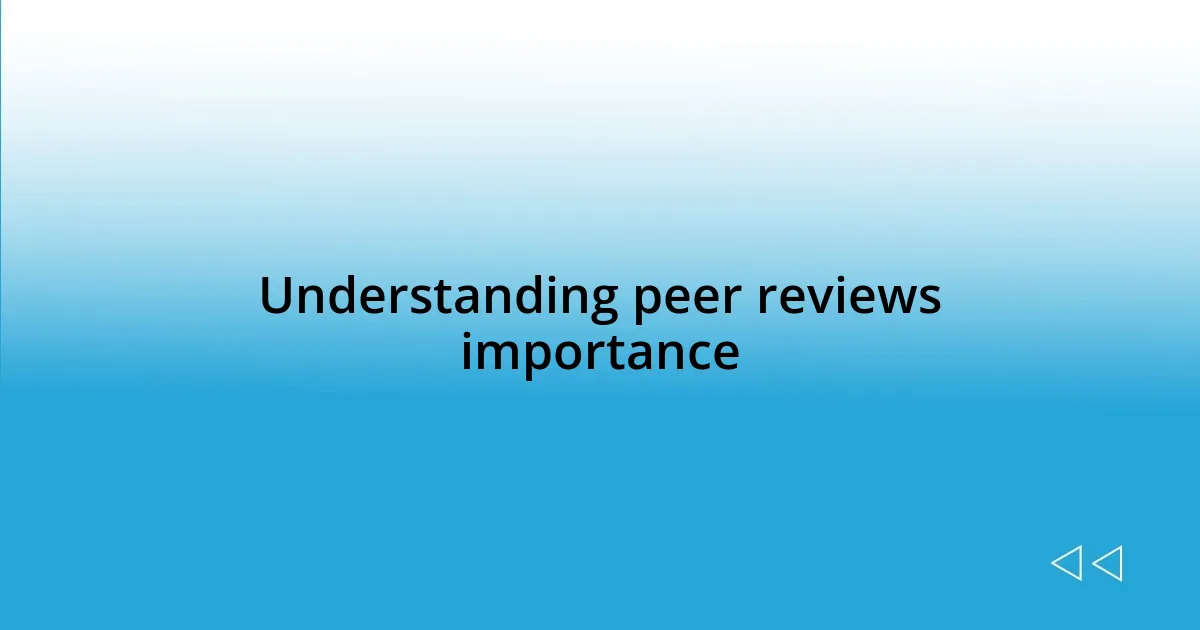
Understanding peer reviews importance
Peer reviews play a pivotal role in maintaining quality and credibility in research. I remember the first time I submitted a paper for peer review; my heart raced with anticipation. Would someone recognize my work’s value? It’s not just about validation; it’s an essential process that helps catch errors and refine ideas, ultimately strengthening the research.
Think about it: when you receive feedback from knowledgeable peers, it can feel like a fresh set of eyes on your work. I once had a colleague point out a critical gap in my argument that I had overlooked. That moment taught me the value of perspective, showing how others can illuminate aspects of our work we might miss, helping us grow as scholars and professionals.
Moreover, peer reviews foster collaboration and build a sense of community. They encourage open dialogue among researchers, making me wonder—how often do we have the opportunity to learn from each other in such a meaningful way? It’s a beautiful exchange that enriches the entire field, sparking new ideas and innovations while fortifying the trust that is essential for the integrity of research.
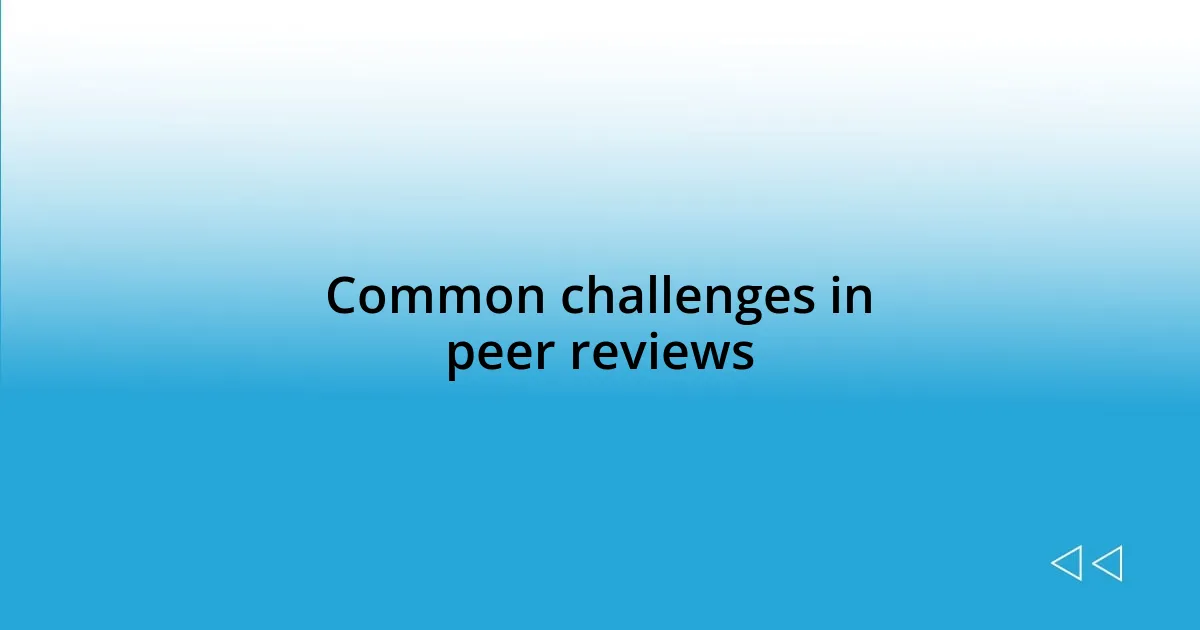
Common challenges in peer reviews
Peer reviews, while essential, are not without their challenges. One of the most common hurdles is dealing with differing opinions among reviewers. I remember when I submitted a manuscript and received two reviews that seemed almost contradictory. It was confusing, to say the least. Juggling divergent feedback can make it tough to determine the best path forward, leaving authors feeling uncertain about how to proceed.
Another frequent challenge is the time-consuming nature of the peer review process. I once had a project that was crucial for my career, yet the review took what felt like an eternity. The waiting game can be nerve-wracking, impacting not just project timelines but personal motivation as well. It’s emotions like these that many struggle with, wondering if their work will ever see the light of day due to delays.
Lastly, there’s the issue of reviewer bias. I experienced this firsthand when a peer reviewer seemed more focused on personal preferences than the merits of the research. It felt discouraging, as if my work was being judged through a narrow lens. Such bias can undermine the process and lead to fears about the fairness and transparency of peer reviews.
| Challenge | Description |
|---|---|
| Differing opinions | Reviewers may have conflicting feedback, leading to confusion for authors. |
| Time-consuming process | Delays in review can impact project timelines and author motivation. |
| Reviewer bias | Personal preferences may overshadow the objective assessment of work. |
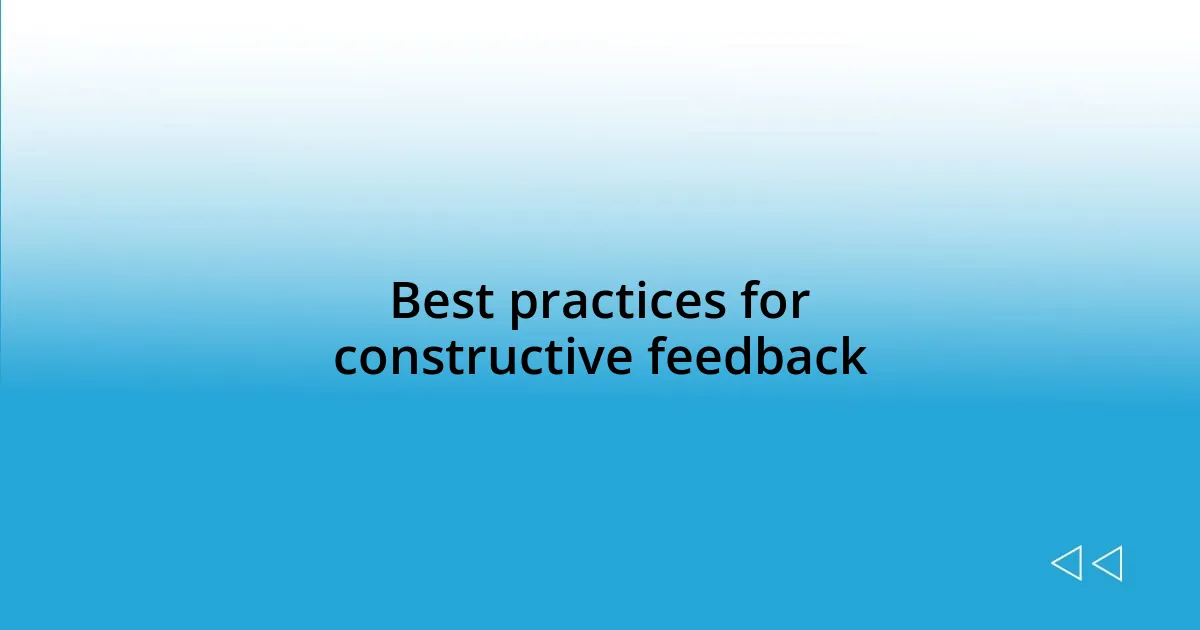
Best practices for constructive feedback
When giving constructive feedback, I find it vital to balance honesty with empathy. Just recently, I was in a position to review a colleague’s work, and I initially hesitated about critiquing a significant flaw in their argument. I remember taking a moment to step back and think about how I would feel receiving similar feedback. This thought process helped me frame my suggestions in a way that highlighted the strengths of their work while gently pointing out areas for improvement. It’s not just about finding faults; it’s about helping someone grow.
Another best practice I’ve learned is to be specific in my feedback. For instance, I once received vague comments that left me guessing at the core issues in my writing. When I review, I strive to provide concrete examples or suggest alternatives that illustrate my points. I ask myself, “Would this clarity help me if I were receiving the feedback?” By being precise, I empower my peers to take tangible steps towards enhancing their projects.
Lastly, I believe it’s crucial to end on a positive note. I try to express appreciation for the effort my peers put into their work, even if the feedback is heavy. I vividly remember a time when a reviewer finished their critiques with an encouraging remark that reignited my passion for the project. These uplifting words made me eager to refine my submission instead of feeling defeated. Isn’t it amazing how a little positivity can inspire someone to push through challenges?






